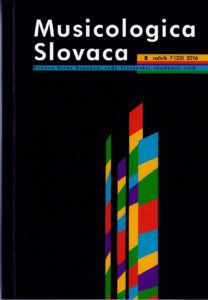Piesňový repertoár Nemcov v obci Veľké Pole na fonografických nahrávkach Karola A. Medveckého (1902 – 1903)
The Song Repertoire of Germans in the Village of Veľké Pole in Karol A. Medvecký’s Phonograph Recordings (1902–1903)
Author(s): Hana UrbancováSubject(s): Cultural history, Music, Geography, Regional studies, Ethnohistory, Local History / Microhistory
Published by: Ústav hudobnej vedy Slovenskej akadémie vied
Keywords: phonograph cylinders; published transcriptions; source criticism; ethnic minority; bilingual song repertoire; musical analysis; collection concept;
Summary/Abstract: The first phonograph recordings of Slovak folk songs were carried out by the ethnographer Karol Anton Medvecký (1875–1937) in 1901 in the village of Detva in Central Slovakia. After this first phonograph session, he recorded songs in the German enclave in Central Slovakia, in the village of Veľké Pole (Hochwies). Today, the technical reconstruction of these recordings is unrealistic due to their physical and biological degradation. Nevertheless, with the help of contemporaneous sources, we managed to reconstruct the time of origin of the recordings, their number, and contents. Medvecký carried out the sound recordings in Veľké Pole with a phonograph in 1902–1903. They consisted of 17 songs in German and Slovak, rendered by a German female inhabitant of this village. Although physical documents only survived in a form of two cylinders, the reconstruction of the song repertoire led to the presumption that there were more, minimum three to four cylinders. The musical analysis of the published transcriptions from 1904 revealed that the songs in German conserved the earlier styles of Slovak folk singing.
Journal: Musicologica Slovaca
- Issue Year: 13/2022
- Issue No: 1
- Page Range: 5-35
- Page Count: 31
- Language: Slovak

